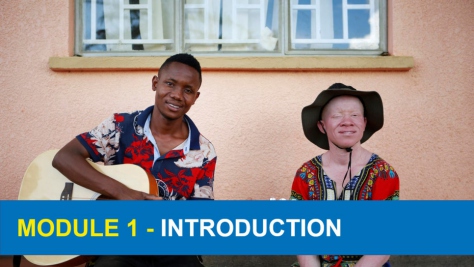UNHCR seeks $13 million to step up response to South-East Asia boat crisis
This is a summary of what was said by UNHCR spokesperson Melissa Fleming – to whom quoted text may be attributed – at today's press briefing at the Palais des Nations in Geneva.
UNHCR is seeking US$13 million to help with the needs of new boat arrivals in South-East Asia, where thousands of refugees and migrants have been crossing the Bay of Bengal and the Andaman Sea.
The appeal was launched yesterday, and is aimed at beefing up our work to do with protection for the nearly 4,800 people from Myanmar and Bangladesh who have been disembarked from smugglers' boats in the last month. In the latest incident, earlier this week, over 700 people were landed in Myanmar's Rakhine state. They included some 120 women and children who said they had been at sea for at least three months.
With the monsoon season imminent, it's estimated that thousands of people may still be at sea.
UNHCR's appeal follows from last Friday's regional meeting of affected States held in Bangkok. It also reflects elements of a 10-point plan of action proposed by UNHCR, the International Organization for Migration and the UN Office on Drugs and Crime.
The funds will allow UNHCR to step up its response in three main areas: Firstly by helping meet the international protection needs of new boat arrivals, secondly by enhancing information available to people considering the journey, and thirdly by targeting some of the root causes of these movements in source countries.
To date, UNHCR's teams have registered just over 1,000 Rohingya new arrivals in Indonesia. In southern Thailand we have distributed relief supplies and are counselling dozens of new arrivals, while in Malaysia we are scaling up to meet the needs of arrivals once consistent access is provided.
Additional resources are needed to set up mobile multi-functional teams to quickly identify and help people with specific protection needs. Refugees who cannot return home will need assurance that they can stay in host countries temporarily with access to legal work until conditions are conducive for voluntary return or until other solutions are found. Where possible, UNHCR will support livelihood programs within national structures to serve the needs of both refugees and host communities.
The appeal envisages trainings for the region's search-and-rescue officials on international legal principles and protection, and exploration of predictable disembarkation options. UNHCR will also expand its monitoring and reporting on maritime movements to include information campaigns providing factual information to potential travelers about the risks and mistreatment at the hands of smugglers and traffickers.
To reduce incentives for people to undertake these dangerous sea journeys, UNHCR will seek legal alternatives such as programs to transition from refugee to migrant status in host countries in need of temporary migrants.
A key part of the appeal focuses on mobilizing support for humanitarian, human rights and development needs in source countries to address the root causes of movement. UNHCR is ready to work with the governments to address issues of citizenship and documentation of people in Bangladesh and in Myanmar's Rakhine state.
To help resolve the three-year-long internal displacement in Rakhine state, UNHCR is seeking to expand assistance to and monitoring of displaced families who wish to return home or establish new homes.
For more information on this topic, please contact:
- In Bangkok, Vivian Tan on mobile +66 818 270 280
- In Geneva, Babar Baloch on mobile +41 79 557 9106
-

ES/2022/01 UNHCR Asylum Capacity Development Evaluation
1 Jun 2022 This document summarises the findings, conclusions and recommendations of the Independent Evaluation of UNHCR's Support for Strengthening National Asylum Systems. The overall purpose of the evaluation is to review how UNHCR has fulfilled its objective to support and strengthen the capacity of national asylum systems in the period 2015–2020 and thereby improve the quality of protection for persons of concern and the sustainability of the systems that support this. Attachments: Executive Summary, Evaluation Brief, Management Response and Annexes (.zip) -

Video Module 1
31 May 2022 -

Course evaluation
31 May 2022 -

Handout 1 - Video Transcript: Safak Pavey
31 May 2022 The handout contains the transcript of the video statement by Safak Pavey, former UNHCR colleague and member of the CRPD committee, on the importance of working with persons with disabilities in forced displacement. -

Saving Maternal and Newborn Lives in Refugee Situations - Evaluation Summary
31 May 2022 UNHCR implemented a three-year project (supported by the Bill and Melinda Gates Foundation) to reduce neonatal and maternal mortality and morbidity among refugees in Cameroon, Chad and Niger. The project targeted 772,000 refugees and focused on low-cost, high-impact interventions. This document provides a summary of the end of project evaluation. -

UNHCR Facilitators Guide - Working with Persons with Disabilities in Forced Displacement
31 May 2022 This Facilitator's Guide on Strengthening Protection of Persons with Disabilities in Forced Displacement supports UNHCR colleagues, partners and others in the field level to recognize protection concerns faced by persons with disabilities and identify different strategies to mitigate risks and promote the inclusion of persons with disabilities in UNHCR programming. -

Handout 0 - Organizing accessible workshops
31 May 2022 The document provides colleagues and partners with practical tips on organizing accessible and meaningful workshops and training for and with persons with disabilities. -

Handout 2 - Models of disability
31 May 2022 The handout for Module 2 Activity 2 of the Disability Inclusion Facilitator's Guide includes the definitions of the four models of disability: charity model, medical model, social model, and rights-based model. -

Handout 3 - Profile cards
31 May 2022 The Handout contains the individual profile cards to be used during Activity 1 of Module 3 of the Disability Inclusion Facilitator's Guide. Each profile card contains the information of a person of concern with disabilities.
